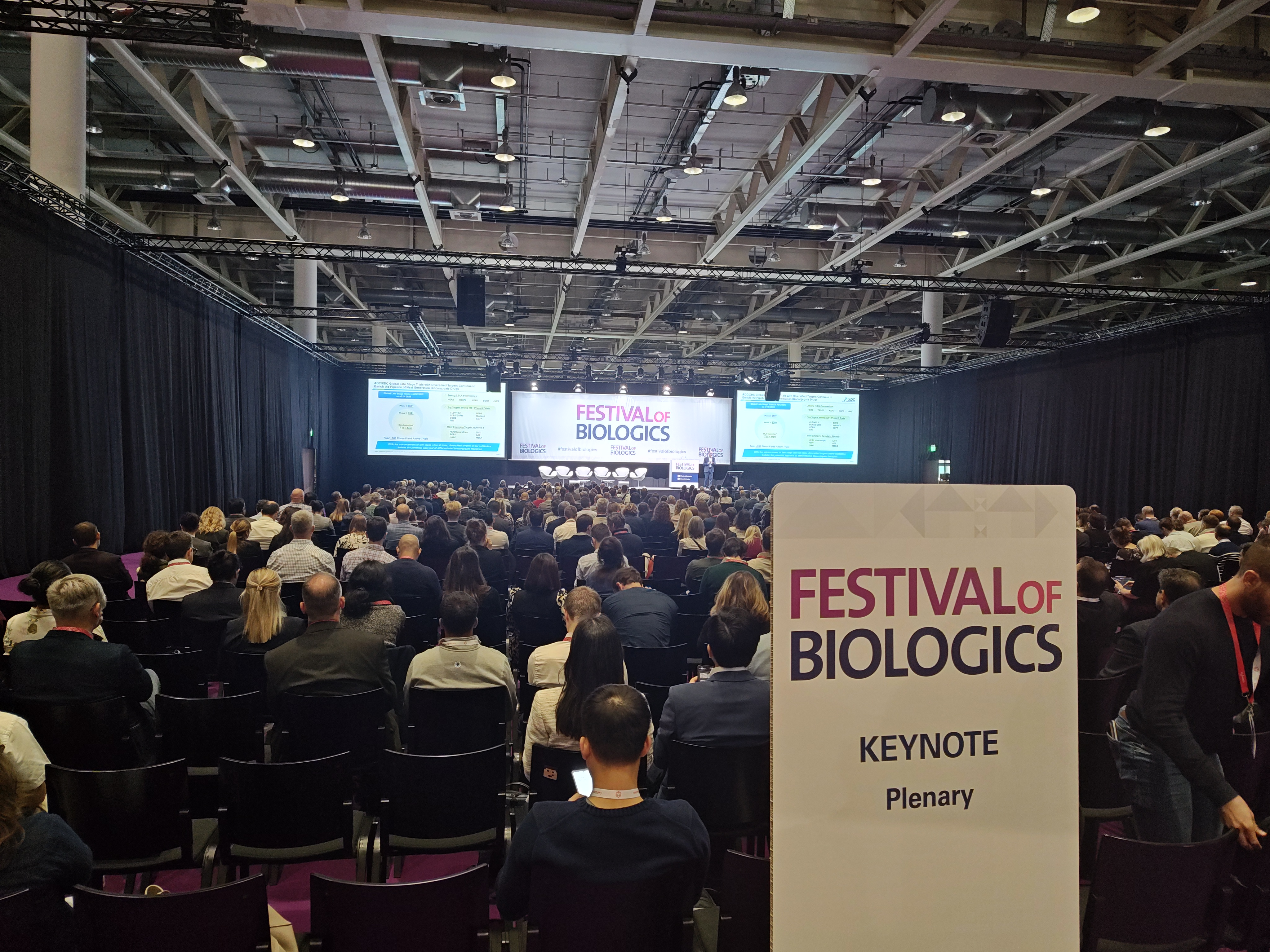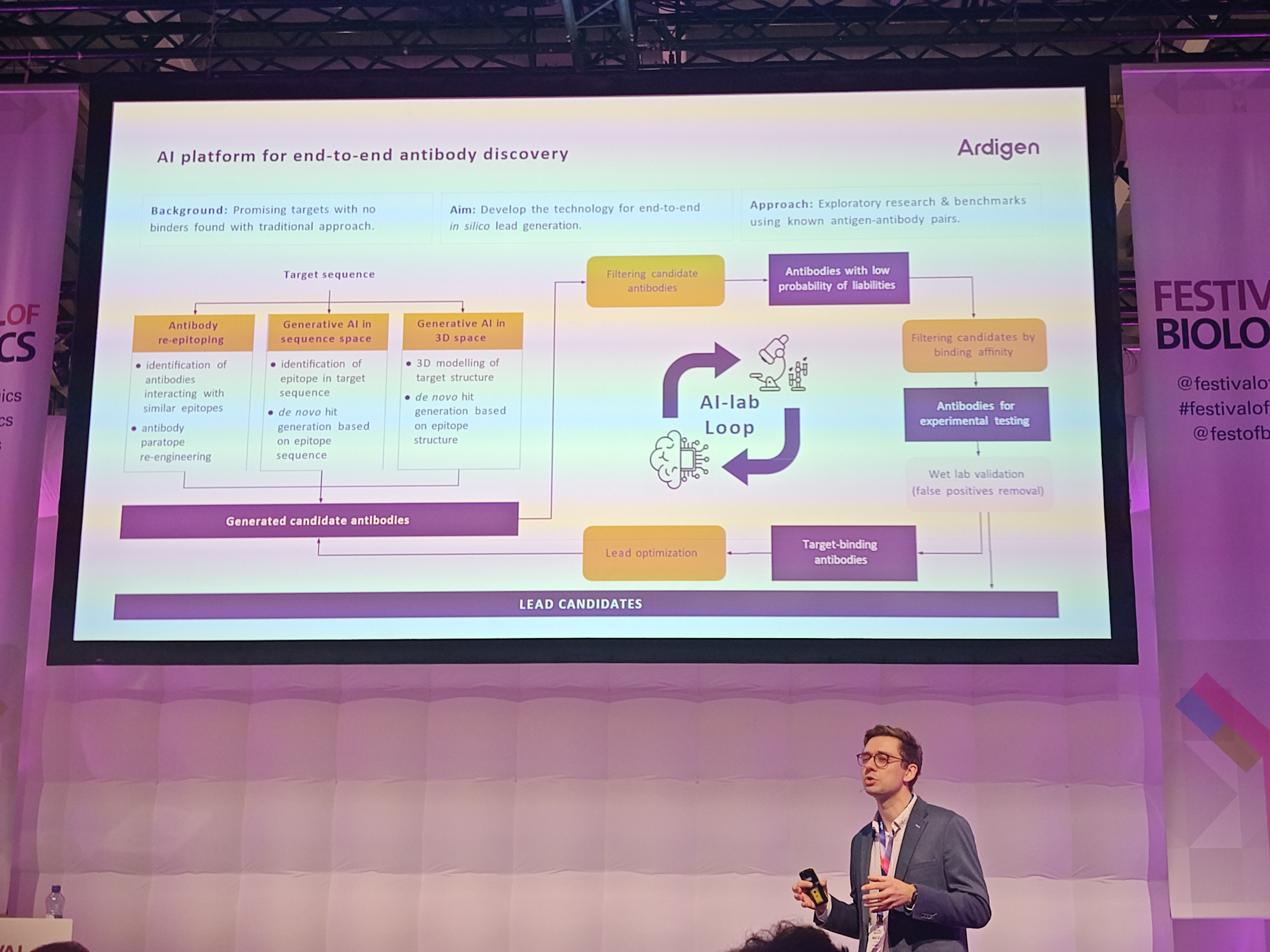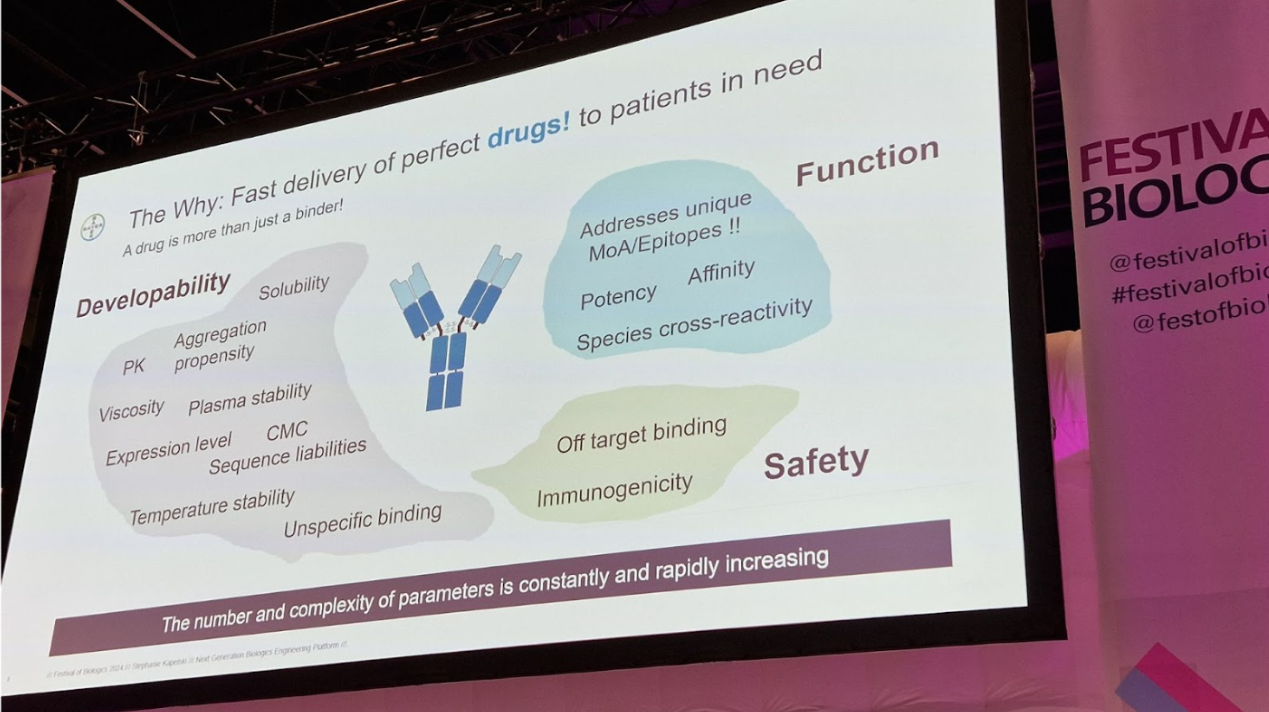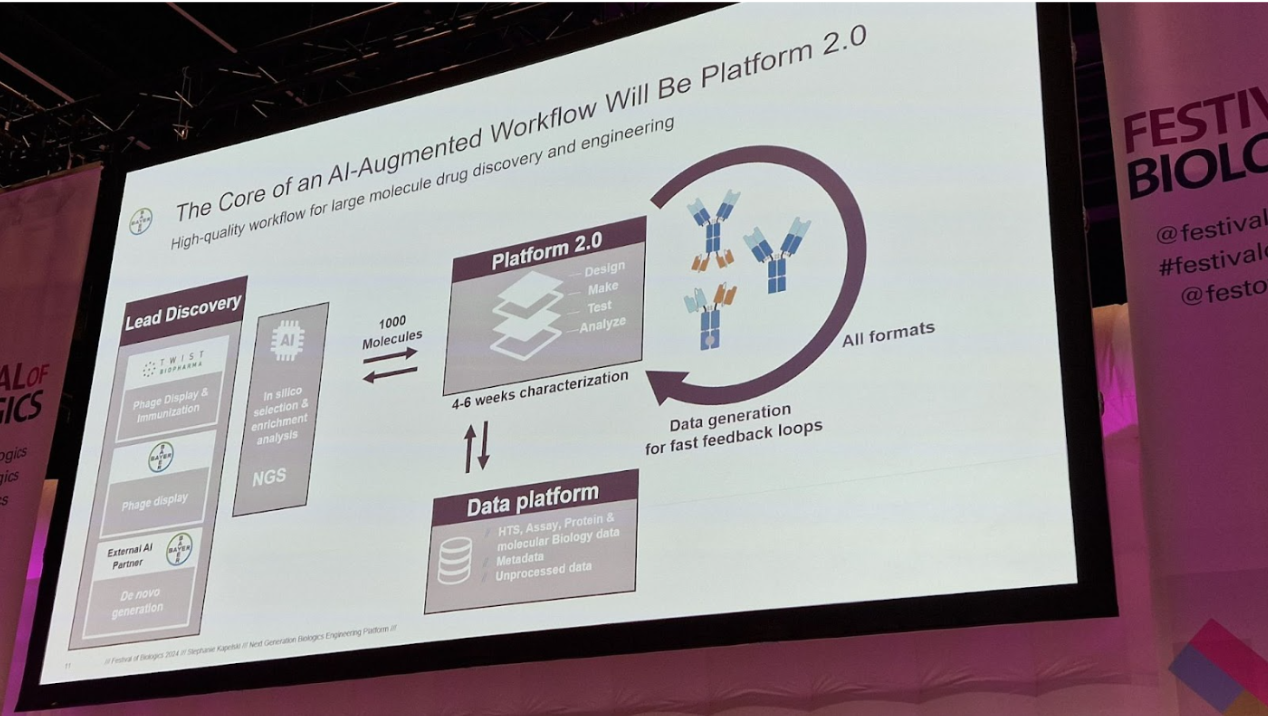AI as a collaboration facilitator
This year’s event highlighted the importance of bridging the gap between academia and industry, the importance of robust data practices and seamless systems integration, as well as cultivating a holistic approach to the biologics pipeline, from discovery to commercialization. Collaboration across disciplines was seen as a crucial step for increasing the success rate and bringing new drugs to market faster.
At the keynote panel titled “Beyond the Hype: Next Steps for AI in Biologics R&D” moderated by Jana Hersch, Head of Scientific Engagement at Genedata, experts discussed how AI can be most effectively integrated into biologics research, emphasizing the need to bridge the gap between scientific expertise and AI technologies. The discussion focused on the potential of specialized AI models, like large language models (LLMs), to act as translators between different scientific domains.
The panelists, including Uwe Wittenberg (Digital Data & IT Business Partner Pre-Clinical Research at Merck Healthcare), Bjoern Hueber (Senior Principal Scientist Data Science at Novartis), and Luciano Lucas (Senior Director AI Product & Imaging Innovation at Leica Microsystems), shared the sentiment that the development of Biologics is too complex to replace scientists with AI. Instead, AI can serve as a powerful tool to enhance collaboration and accelerate drug development.
End-to-end platforms for antibody design and optimization
On the technology side, we enjoyed a couple of great talks on employing end-to-end platforms for the discovery and development of antibodies from Hong Liang, a Professor at Shanghai Jiao Tong University, and Stephanie Kapelski, Matrix Lead in Antibody Screening & Assay Technologies at Bayer.
Hong Liang’s talk, “Comprehensive Artificial Intelligence Solutions for Protein Engineering,” highlighted the use of large language models (LLMs) trained on 800 million protein sequences, significantly more than public datasets. By treating protein sequences like paragraphs of text, the model extracted valuable insights, achieving impressive results in de novo lead generation and optimization. This approach aligns with Ardigen’s work on protein LLMs, such as PRISM, showcasing the potential of AI in protein engineering.
Stephanie Kapelski’s talk, “Next-Generation Biologics Engineering Platform,” focused on optimizing the biologics development process through AI and automation. She emphasized the importance of early, multi-parameter drug candidate characterization and the need to “learn fast and fail fast.” By combining AI with automated high-capacity labs, Bayer’s platform accelerates lead optimization, reduces cycle times, and improves candidate selection. This approach has proven successful in streamlining the biologics development pipeline.








